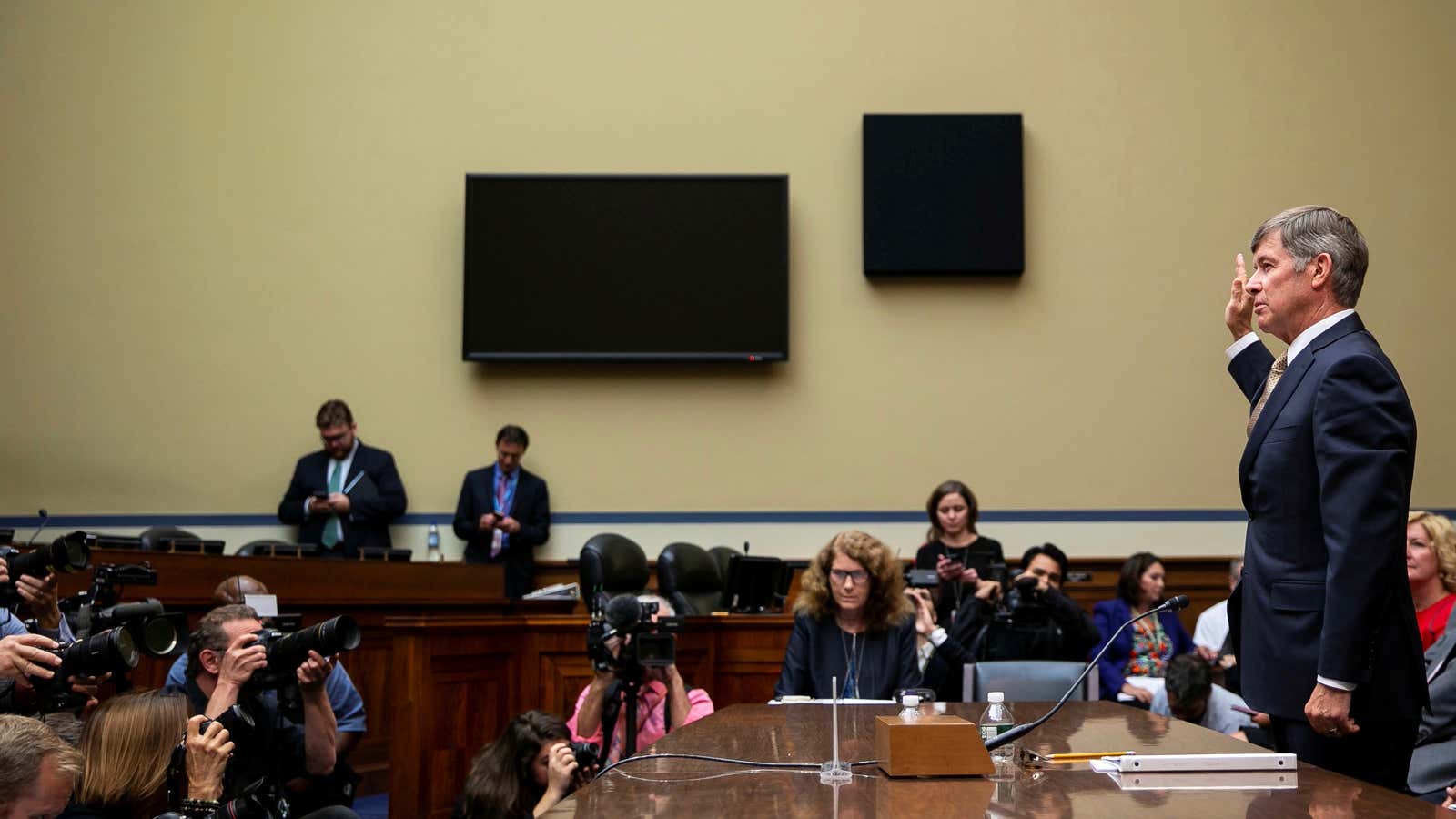The office of the director of national intelligence provided lawmakers on Wednesday with an unclassified version of the complaint written by a whistleblower that is now at the center of a presidential impeachment inquiry. This morning, that complaint was released to the public.
It’s an extraordinary document (pdf), detailing serious concerns government officials had with the contents of a July 25 phone call between US president Donald Trump and Ukrainian president Vlodymyr Zelensky. In the phone call, the US president appears to pressure his counterpart to investigate, among other things, the family of his political rival, former vice president Joe Biden.
Although the president insists there was no wrongdoing and has called the impeachment process Democrats in the House of Representatives initiated on Sept. 24 “a joke,” it’s clear from the new document that this matter is actually very serious, and that White House officials knew it. From the whistleblower complaint:
In the days following the call I learned from multiple US officials that senior White House officials had intervened to “lock down” all records of the phone call, especially the official word-for-word transcript of the call that was produced—as is customary—by the White House Situation Room. This set of actions underscored to me that White House officials understood the gravity of what had transpired in the call.
The whistleblower goes on to say that White House officials told him they were “directed” by internal lawyers to remove the electronic transcript from the computer system where they are usually stored for distribution to cabinet officials and instead loaded the information into a separate system used for “classified information of an especially sensitive nature.” An unnamed White House official told the whistleblower that this was an “abuse” of the electronic system.
The complaint also goes a long way to confirm concerns raised in notes of the phone call earlier this week. According to the whistleblower:
Multiple White House officials with direct knowledge of the call informed me that, after an initial exchange of pleasantries, the President used the remainder of the call to advance his personal interests. Namely, he sought to pressure the Ukrainian leader to take actions to help the President’s 2020 election bid.
In addition to Trump pressuring Zelensky about Biden, the complaint also says he requested that Ukraine uncover evidence about servers used by the Democratic National Committee in 2016—which were previously investigated by the American cybersecurity firm Crowdstrike and found to be tampered with by Russian hackers—to prove the hacks actually originated in Ukraine, an apparent effort to derail an investigation into his campaign’s involvement in Russian election interference. Trump also explicitly requested that Ukrainian officials meet with attorney general William Barr and with the president’s personal lawyer Rudy Giuliani about the matters.
The US president also “suggested” in the phone call that Zelensky keep Ukrainian prosecutor general Yuriy Lutsenko in office. Lutsenko made allegations in March that he later “walked back” about the Bidens’ activity in Ukraine and the nation’s interference in the 2016 US elections. These claims, since retracted, worked for Trump politically.
While the complaint, as well as events before and after—including a delay in releasing funds appropriated to Ukraine for its defense—indicate Trump used his presidential power for domestic political gain, the White House remains adamant in its denials of wrongdoing. In response to the document released today, it issued a statement saying, “Nothing has changed with the release of this complaint which is nothing more than a collection of third-hand account of events and cobbled together press clippings—all of which shows nothing improper.”
Acting director of national intelligence Joseph Maguire, meanwhile, is under fire for not immediately turning over the whistleblower complain to lawmakers. Testifying to a Congressional oversight committee today, Maguire said he didn’t initially release the document due to concerns about executive privilege and noted that this is an unusual situation. “I believe that this matter is unprecedented,” he testified, but confirmed that the whistleblower, whoever they may be, acted in “good faith.”
